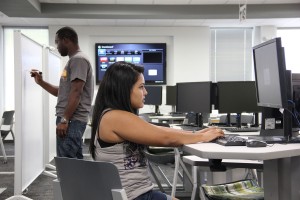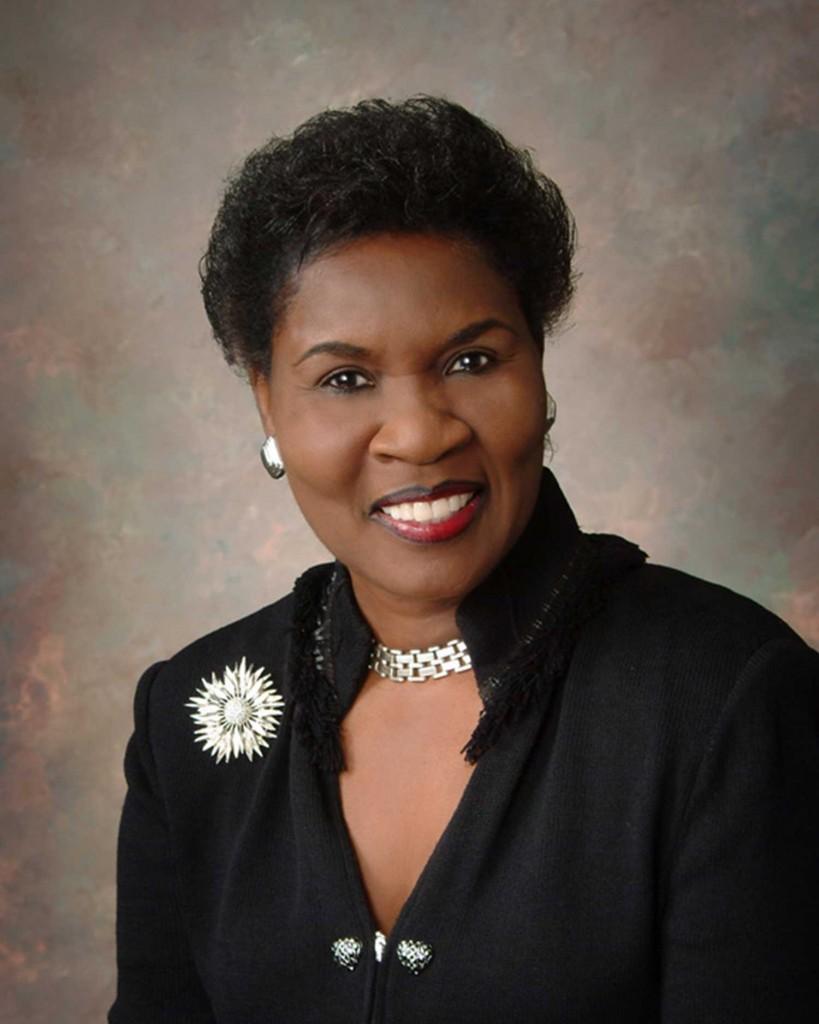
By Kirsten Mahon nw news/multimedia editor
Math courses take three different forms at TCC, ultimately giving students the power to determine, when, where and how fast they complete developmental courses.
The latest form is the Math Emporium option, where students test to determine what material they need to learn and progress through online courses. While in Emporium, students work multiple problems generated by a mastery-based learning system, the program analyzes the way and speed students solve the problems. This allows the student to complete the course before the semester is over.
Dillon Lu, TR Campus instructional associate, said the Math Emporium classes have no finals — just preliminary testing and tests at the end of each unit. The faster the equations are solved, the closer a student gets to an end-of-unit test.
“Developmental courses definitely help,” NE and SE student Ernest Smith said. “I think it would be beneficial because it lets you go at your own pace.”
Smith studied remedial math in a traditional classroom in 2004. He said he did fine in the common lecture environment, but a computer-based classroom reaches a larger variety of students.
“Sometimes you’re not where you need to be for college classes, and TCC really helps,” he said.
Smith said students right out of high school aren’t always at the same level, and some students may wait to return to school a few years after graduating high school. The mix can leave a traditional classroom unbalanced. Smith also said computer-based classes can help students interact with their instructors more freely because there’s no lecture.
“You can ask the teacher questions,” he said. “The time of study is optional. You have the weekends if you want.”
According to Tai Vo, NE math lab manager, the demand for traditional classroom courses is still high even as computer-based classroom enrollment continues to grow. TCC had to add more traditional classroom courses in the weeks leading up to the beginning of the semester to meet the demand, he said. However, Vo believes that computer-based classes are beneficial as well.
Now that TCC has done away with one of the developmental courses, MATH 0350, the material for that course has been combined with the lower-level courses leading up to Intermediate Algebra, Vo said.
“In the long run, it can be better for the student,” he said.
According to Vo, students can now complete what were originally three courses in just two. This means students spend fewer semesters in developmental courses and more time in courses that work toward their degree.
Aside from traditional classroom lecture and Math Emporium, students can enroll in modular math classes, which can combine computer-based homework and class time simply monitored by a tutor or instructor, like the Emporium.
For modular math classes, students can take a free placement test at any of the TCC math testing centers. After testing, students are placed into a module that allows them to complete course material in up to five weeks. Each semester includes three modules, and if a student doesn’t complete the coursework in the five weeks, they are required to retake only the particular module instead of retaking an entire semester’s worth of the same remedial material. According to Vo, these types of learning environments have proved successful.
Students can choose which kind of math course to take. All sections are labeled in WebAdvisor, and students with questions can visit with math department instructors to learn more about their choices.





















